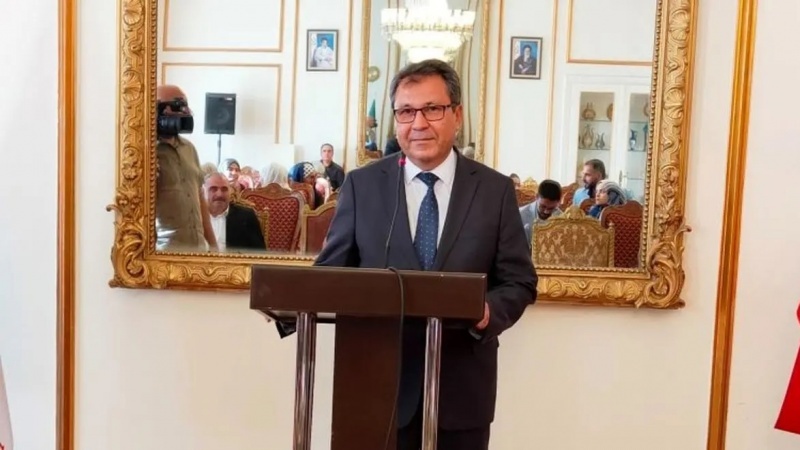AhlulBayt News Agency: The head of the Faculty of Literature at Selcuk University in Turkey said: Farsi is the language of thought and ideas of the Turkish people, and for this reason, this language is very valuable in Turkey.
Professor "Ali Temizel" emphasized: From the point of view of the Turkish people, Farsi is not a foreign language, but a cultural language.
He added: There are Farsi language and literature departments in many universities in Turkey, and Farsi is the language of thought and ideas of the Turkish people.
This Turkish Farsi language teacher also spoke about the possibility of holding joint cultural events with other countries: Iran and Turkey have strong and good relations, and in an exhibition held a few years ago, Iranian music was used, which creates a common culture and friendship between Iranian and Turkish citizens.
Temizel emphasized: When we use these cases for cultural diplomacy, we also make progress in political diplomacy. Turkey and Iran always use these opportunities.
Temizel also spoke about the extent of the Turkish people's familiarity with the Farsi language and literature. He said: The courses taught in schools during the Seljuk and Ottoman periods in Anatolia were in Farsi, and many historical and mystical books were translated into Ottoman Turkish, and this tradition continues. Many Ottoman ministers also wrote poetry in Farsi, so the Turkish people are well acquainted with the Farsi language.
In this regard, in recent years, "Yahya Kemal" and "Abdulbaqi Golpinarli", two of the prominent literary figures of Turkey, have paid special attention to the quatrains of the Iranian poet "Hakim Omar Khayyam Neyshabouri" and have translated Khayyam's beautiful poems into Turkish.
Previously, "Mehmet Kanar", a Turkish writer and translator, had spoken about the importance of the Farsi language in Turkey: Today, there is a great interest in learning Farsi in Turkey, and Farsi language and literature departments have been established in major Turkish universities, and in some universities, although there is no independent Farsi department, this language is taught.
Kanar said that the readers of Farsi works in Turkey are increasing day by day, adding: It is better to use cultural diplomacy instead of cultural relations, and what is clear is that the exchange of culture and cultural industries will give new life to the relations between Turkey and Iran.
/129
16 November 2024 - 16:00
News ID: 1505055

The head of the Faculty of Literature at Selcuk University in Turkey said: Farsi is the language of thought and ideas of the Turkish people, and for this reason, this language is very valuable in Turkey.
